What Is The Difference Between ANTISOCIAL and ASOCIAL?
Yesterday I posted about how to tell the difference between psychopath and sociopath. Since psychopaths and sociopaths are under a mental disorder called antisocial personality disorder, I find it important to talk further about what is an antisocial personality disorder and the difference between antisocial and asocial.
Why? It’s for us to better understand the meaning, know the signs and symptoms so if our family members, friend, or even ourselves show the characteristics of having an antisocial personality disorder, we know what to do to handle it and prevent it to become worst.
What Is The Difference Between Antisocial and Asocial?
Antisocial is a term to describe a personality disorder where behavior deviations from the norms, which continue to be carried out from time to time and lead to actions that have the potential to endanger himself or others.
In more popular terms, antisocial is known by another name as a psychopath or sociopath. People with antisocial personalities have some characteristics in their behavior and personality, such as often ignoring and violating the rights of others, have no empathy or compassion for others, are not introspective, feel superior to others, and are manipulative.
Someone can be categorized as having this kind of disorder after being over 18 years. However, labeling antisocial personality disorder is given only if symptoms have appeared before they are 15 years old.
There are many assumptions about antisocial, asocial, and introverts circulating in our society. What are these personalities really like?
Asocial vs Antisocial Definition
Personality disorder is a condition that is formed from personal experiences and deviant behavior, usually the initial symptoms are seen in adolescence or young adults, are stable over time, and lead to personal suffering or disability.
Personality disorder is a serious mental health condition that affects how a person thinks, feels, accepts ideas, or relates to other people.
Asocial personality disorder is a personality dysfunction in which a person separates himself from social interaction and tends to ignore others. Someone who experiences asocial can get along well, but they more often choose not to do it.
The reasons are various, whether it’s not interesting, lack of confidence, prefer solitude, and so forth. However, if asociality continues to be allowed to have an impact on their lives, such as not getting recognition from others or not being considered to exist.
=======> BrainMD Supplements <=======
Antisocial personality disorder is characterized by patterns of behavior that are exploitative, fraudulent, ignoring the law, violating the rights of others, and abusive (tend to be criminal), without clear or logical motives.
People with antisocial disorders will have a history of behavioral problems in childhood, such as truancy, violation of norms (for example, committing crime or substance abuse), and other destructive or aggressive behavior.
The severity of antisocial symptoms can vary. Patterns of behavior that look very dangerous, cruel, and terrible refer to psychopathic or sociopathic disorders.
There is still much debate about the accuracy of the descriptions of the two, but sociopathic behavior is characterized by a defective conscience; know right from wrong but they ignore it. While a psychopath is characterized by a lack of conscience (or none at all).
Because of this manipulative tendency, it will be difficult for ordinary people to be able to distinguish what is honest or not from each of their words.
Also read: Recognizing Narcissistic Personality Disorder
Why can someone be antisocial?
A person’s personality traits are generally determined by a combination of emotions, thought patterns, and behavior. To find out why someone suffering from antisocial personality disorder is not easy. Because, the cause of the disorder is often influenced by various factors, such as genetic factors and interactions in the environment, as well as bad parenting.
Another thing that influences the emergence of antisocial personality is the way a person sees, understands, and relates to the outside world. How a person understands himself is equally important. In addition, personality factors during childhood that are formed both genetically and as a result of environmental influences, also influence.
In other words, the exact cause of antisocial personality disorder is not known with certainty. The experts only concluded that there is a genetic influence that makes a person vulnerable to suffer from this personality disorder. However, experts also argue that heredity also contributes to increasing antisocial risk. In addition, abnormalities in brain function in certain parts are also thought to play a role in causing a person to be antisocial.
Some risk factors that might cause antisocial attitudes, namely:
- Skipping childhood by being abandoned or exploited.
- Come from a family that has antisocial personality disorder, other personality disorder, or mental disorder.
- Have a history of behavioral disorders in his childhood.
- Childhood was in a family environment that was not harmonious or often the victim of acts of violence.
Antisocial is not the same as introverts
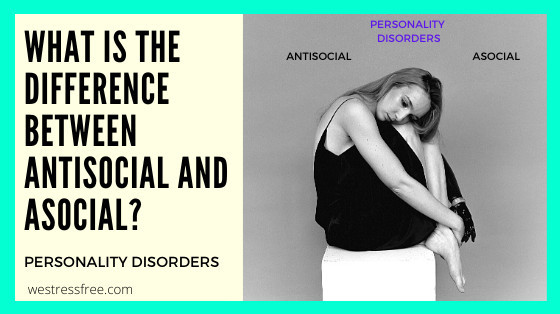 Introvert personality traits are often assumed to be shy, social phobic, or even avoiding social situations. But make no mistake. Many introverts can easily socialize; they are only more comfortable when they are not socializing.
Introvert personality traits are often assumed to be shy, social phobic, or even avoiding social situations. But make no mistake. Many introverts can easily socialize; they are only more comfortable when they are not socializing.
When socializing, the signals sent by the amygdala and nucleus accumbens (the part of the brain associated with joy and the reward system) in the introvert’s brain will not light up as actively as an extrovert’s brain. As a result, if extroverts feel happy while socializing, introverts do not feel this.
Introverts also tend to use the frontal lobe more, which is the part of the brain that is in charge of planning, thinking about problem-solving, and remembering. Someone who is introverted is not afraid of social activities but may look like that because they tend to process things internally and think first before speaking.
In short, antisocials with introverts are two completely opposite terms in the world of psychology.
It is important to understand that introversion is only a variety of personality types, and is not a personality disorder at all. This is the result of the formation of various factors, both internal and external.
=======> BrainMD Supplements <=======
Can antisocial be cured? – Is it okay to be antisocial?
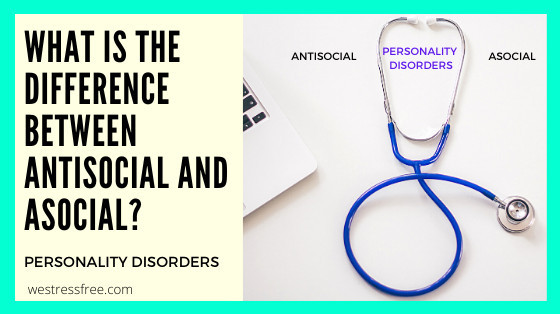 Given the many factors that might shape antisocial personality, the question arises whether this behavior disorder can be cured? Curing this disorder is certainly not easy. Until now there has been no drug or specific therapeutic method that can cure people with antisocial personality disorders.
Given the many factors that might shape antisocial personality, the question arises whether this behavior disorder can be cured? Curing this disorder is certainly not easy. Until now there has been no drug or specific therapeutic method that can cure people with antisocial personality disorders.
The step of handling antisocial personality disorder aims to prevent behaviors or actions that can endanger others or themselves, and encourage and guide antisocial sufferers so that they can live well in society.
The treatment can be in the form of behavioral therapy or psychotherapy, whether done individually or in groups. While treatment with special drugs, it is not certain. If certain mental and emotional disorders are found, such as anxiety, difficulty in suppressing emotions, or the urge to do something bad, the doctor may give you mood stabilizers, tranquilizers, or antipsychotics.
Because healing is relatively complex, people around people with antisocial personality disorder should also provide support.
One thing that is key to handling antisocial personality is to consult with a psychiatric specialist. It is indeed not able to cure sufferers from antisocial disorders, but the skills taught can help sufferers to understand their condition, so they can protect themselves and prevent them from doing harmful things.
Asocial vs Introvert
It turns out there is a striking difference between introverts and asocial you know. Many people assume that introverts do want to be left alone, but apparently, it’s not that easy to know.
In fact, not many people know about the meaning of asocial. Sometimes, the meaning often overlaps, even though the two are two different things.
To make no mistake, let’s recognize the basic differences between introverts and asocial.
The desire to meet people
An introvert basically still has the desire to be in a group or a group that contains a lot of people, as long as the introvert himself takes the initiative first. Introverts can also, really, once in a while get to know and meet new people, but still, he needs more time for himself.
Meanwhile, asocial does not want real interaction with other people. If introverts can still enjoy the interaction with other people, asocial can not at all. In fact, asocial can at all not chat with other people, because he does not want to take the initiative to interact. It can be concluded that asocial feel fully happy if he can avoid others.
Shy
Although many believe that introverts are shy, when in reality it’s not like that, you know. A blog once discussed that Bill Gates was an introvert, but he was not shy at all. The majority of introverts apparently still want to interact with others, just not always.
The same thing as asocial who also does not tend to be shy. But because asocial often refuses to interact with the outside environment, finally social anxiety arises which only has as social.
Be among many people
Introverts love being around and interacting with many people in their own way. Introverts are also not easy to reject friends or when someone calls them. However, introverts more often feel uncomfortable at an event with many people and have to interact for a long time.
Meanwhile, asocial requires emotional and physical distance from others. Asocial doesn’t want to be around people at all and often refuses to interact. Even though sometimes people are thought to be rude, asocial doesn’t hate those people at all. Asocial just hates the situation with many people in it, because he feels happy with himself.
Dating and going out
Most introverts still think that dating and going out are still important to them. Even by dating, they can meet people who are not introverted. But anyone who will date the introvert must know very well that introverts need their own space to recover their energy.
Meanwhile, asocial does not at all view romantic relationships like dating, and going out is important because asocial enjoys more time alone.
=======> Shop BrainMD Supplements <=======
Asocial vs Antisocial
What is the difference between antisocial and asocial?
Asocial is a personality dysfunction characterized by withdrawing and voluntarily avoiding any social interaction. An asocial person tends to be ignorant of others, sometimes rude.
Asocial is different from antisocial behavior, where antisocial implies the behavior of hating other people or antagonism towards other people and the general social order.
Asocial nature is often seen in some introverts, but extreme asociality usually arises in people who experience certain clinical conditions, such as bipolar disorder, autism, schizophrenia, depression, Asperger’s syndrome, and social anxiety disorder.
I’ll leave you guys with this short video that is worth to watch:
***
So now you know the difference between antisocial and asocial. I have also explained the difference between antisocial or asocial with an introvert.
If you have more questions, please call a psychologist, psychiatrist, or therapist near you.
Stay safe, happy, and healthy!

—————————————————————————————————————————————–
This post may contain affiliate links, which means I make a small commission off purchases, at no extra cost to you. Read my full disclosure here. Thank you for supporting the work I put on this site!
 Brain Fitness Tool to Help You Learn to Stay Focused, Calm and Manage Stress
Brain Fitness Tool to Help You Learn to Stay Focused, Calm and Manage Stress—————————————————————————————————————————————–
We Stress Free does not provide medical advice, diagnosis, or treatment. However, if you need someone to talk to and want to make friends, please feel free to reach me at ferra@westressfree.com. If you would like to REDUCE your STRESS and are interested to do an ONLINE THERAPY, you can do so here.
———————————————————————————————————-—————————-
Disclaimer: The information contained in this website is for educational and informational purposes only and is not intended as health or medical advice. Always consult a physician or other qualified health provider regarding any questions you may have about a medical condition or health objectives.
Thank you for reading today’s topic: What Is The Difference Between Antisocial And Asocial?


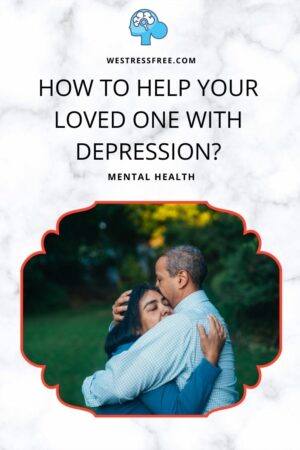

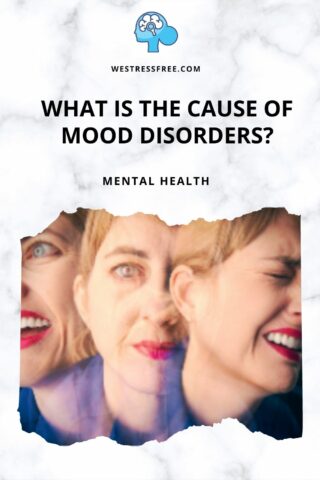



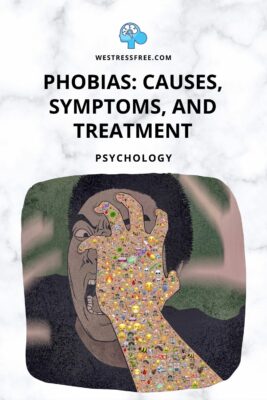

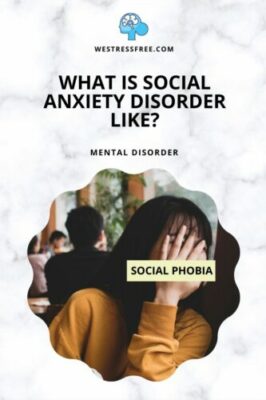
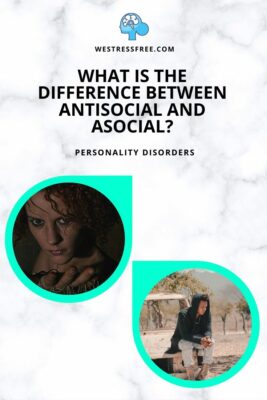
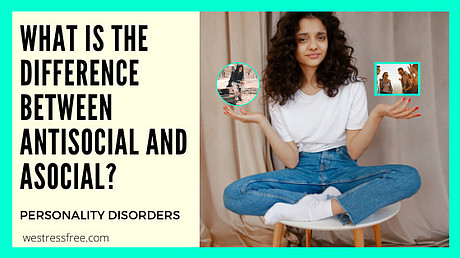



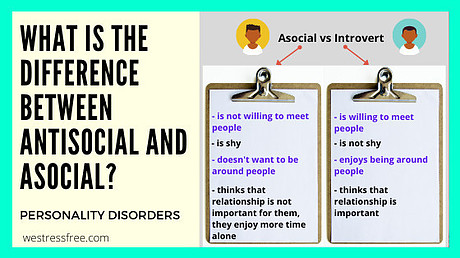


Thanks for the informative post. I personally fall into the introvert category. I can socialize when I need or want.
Thanks for sharing
Hello John,
Thank you for stopping by my website, reading the post, and leaving a kind comment.
I appreciate you for sharing your thoughts and support.
Glad to hear that you found this post useful.
Stay safe, happy, and healthy!
Ferra
Very interesting post. I know someone who seems to have the charcteristics you described of an antisocial person. He had a tough adolescence on the street, involved with drugs and crime, and now he is man who can be nice at times, but who can also display immense rage and grudges that can last for weeks and even months, he can also be very cruel. I suggested that he sees a psychologist, but he has not done it, and it is a decision I cannot force o n him, he needs to decide that himself. I hope that one day soon he does.
Hello Christine,
You did the right thing. You tried to help by suggesting him to see a psychologist. If he doesn’t want to, we cannot force it. The person maybe has some other ways to deal with his condition.
Thank you for stopping by my website, reading the post, and leaving a kind comment.
I appreciate you for sharing your thoughts and support.
Glad to hear that you found this post useful.
Stay safe, happy, and healthy!
Ferra
I must give you much praise on explaining the difference between antisocial, asocial, and introverts.
Being a natural introvert since childhood I know most people who are introverts are not happy the way they are, but they do the best they can to manage social events when they have no choice.
This really is an amazing article
JEff
Hello Jeff,
Thank you for stopping by my website, reading the post, and leaving a kind comment.
I appreciate you for sharing your thoughts and support.
Glad to hear that you found this post useful.
Stay safe, happy, and healthy!
Ferra
Great article, Ferra! You have once again made an important distinction that I didn’t truly understand before reading your post. Antisocial individuals tend to be remorseless, hate others, and exhibit dangerous propensities, while asocial people don’t hate or try to hurt others-they’d just rather be left alone. Similarly, asocial people don’t like to socialize with others in big crowds (if in any size crowd), whereas introverts don’t mind socializing with people, but they’d rather be in control of the conversation and still feel more comfortable to themselves. I have literally created a spreadsheet to differentiate between psychopaths and sociopaths, and will do the same for antisocial vs asocial people, as well as asocial people vs introverts. You are doing a great service to the world with these articles! God bless you!
Hello C.N.,
Thank you for stopping by my website, reading the post, and leaving a kind comment.
I appreciate you for sharing your thoughts and support.
Glad to hear that you found this post useful.
Stay safe, happy, and healthy! God bless you too, C.N.
Ferra
Thank you for sharing this information about The Difference Between ANTISOCIAL and ASOCIAL. It’s a complicated topic that you have clearly explained. I will share with my friend that could benefit from it.
Hi Alyse,
Thank you for stopping by my website, reading the post, and leaving a kind comment.
I appreciate you for sharing your thoughts and support.
Glad to hear that you found this post useful.
Stay safe, happy, and healthy!
Ferra
A really nice and thorough explanation of differences. I’d say we have an asocial young men in the broader family, or at least very close to that. He is a good, nice guy, only he doesn’t like very much to be around people. The last time, for example, we were invited to celebrate his birthday, but he went for a walk. When he came back, he did not stop to say hello, or receive the congrats, or presents, but entered his room and stayed in. The next day his mom said he was very happy to open the presents when everyone left.
Hello Minaher,
Wow… I wish he could at least say something to the people who came to his birthday party. At least his family knows that he has that issue and won’t force him to stay in his own party with all of the people he won’t feel comfortable to be around with.
Thank you for stopping by my website, reading the post, and leaving a kind comment.
I appreciate you for sharing your thoughts and support.
Glad to hear that you found this post useful.
Stay safe, happy, and healthy!
Ferra